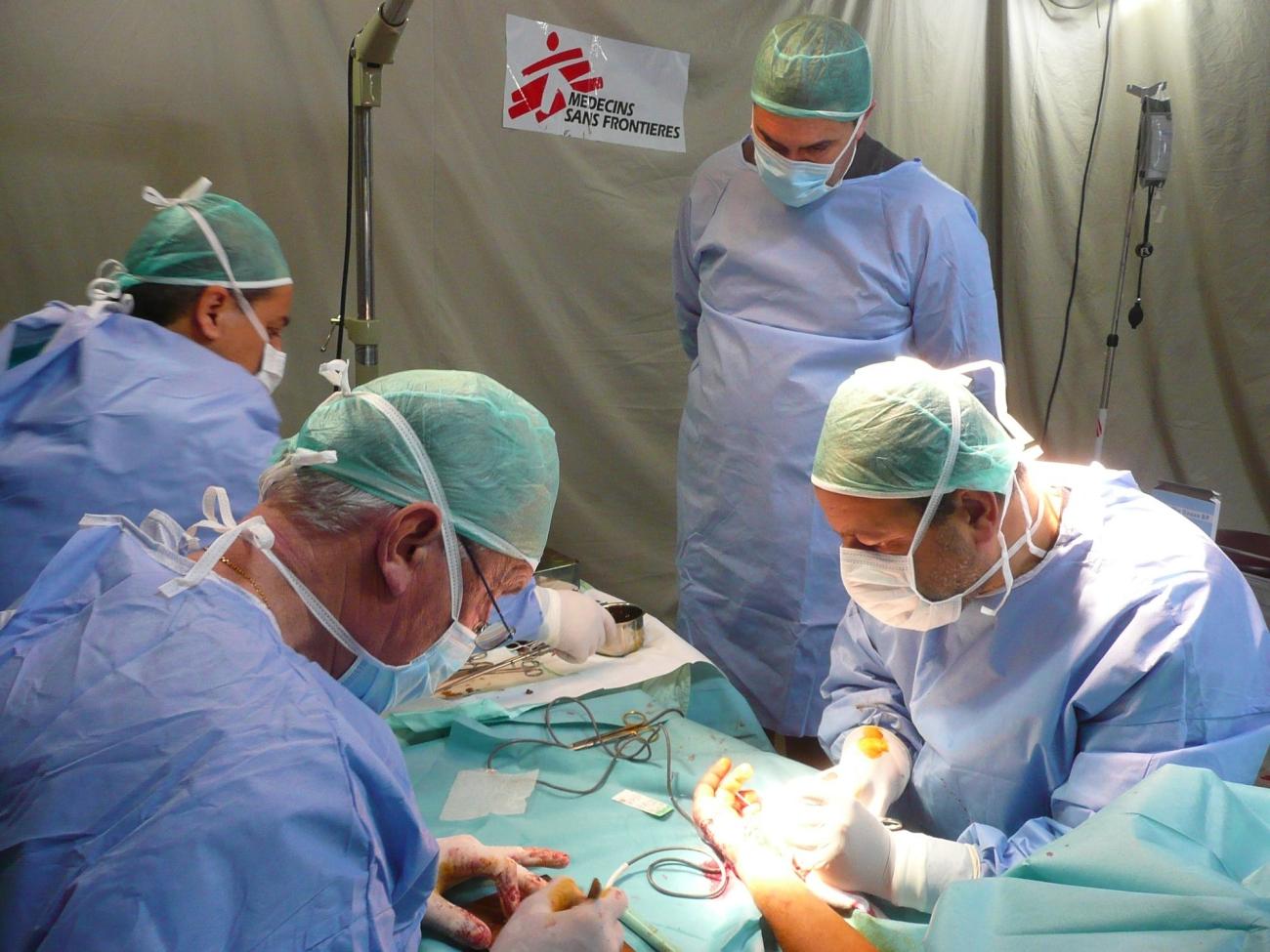Delia, plastic surgeon in Haiti
Portrait

Profile
DIPLOMA
EXPERIENCE
AVAILABILITY
LANGUAGE
SKILLS
The surgeon is responsible for surgical procedures and postoperative surgical care, in accordance with MSF protocols.
They work closely with all the staff in the OT and interact with doctors and nurses in emergency, intensive care, surgery and possibly other medical services. They provide supervision and ensure the ongoing training of the surgical team. They report to the medical referent, the hospital director or the project coordinator according to the organization of the program.
The humanitarian surgery practiced by MSF on the ground for more than 40 years exists in the majority of the cases in contexts of war. It has constantly evolved, developing solutions that are better adapted to the realities of the field and incorporating ever more demanding standards of medical practice.
In 2021, 40,820 interventions were performed on 17,888 patients. 2021 is a record year in terms of interventions, exceeding 2019, which also passed the 40,000 procedures. MSF Surgical activities take place in 14 countries with 1 to 5 surgical projects per country.
There are 119 departures in 2021, including 37 first assignments (FA) (compared to 82 departures in 2020, including 22 FA). The international surgeons come from 29 countries, representing the 5 continents.The detailed statistics by specialty are as follows: 49 departures of general surgeons (including 8 FA), 28 orthopedic surgeons (including 12 FA), 1 vascular surgeon, 8 plastic surgeons (including 1 FA), 9 pediatric surgeons (including 3 FA), and 24 obgyns (including 4 specializing in oncology and 13 FAs among all gynecologists).
Burn and plastic surgery of the hand are done in Haiti, Jordan and the Palestinian Territories.
Médecins Sans Frontières began treating burn victims in 2007 in collaboration with a team of specialists from the Edouard Herriot burnt center in Lyon.
The burns represent 30% of our surgical activity. Improving our multidisciplinary management of burnt patients remains a priority for MSF.
News related to this job